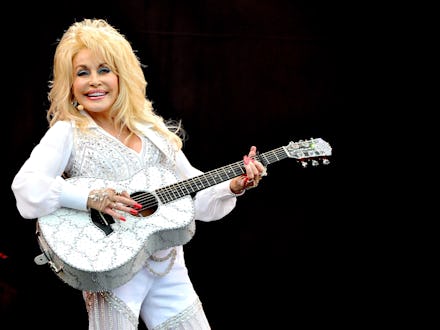Dolly Parton might've helped cure coronavirus — can't say we're surprised

The breakthrough development of two highly-effective coronavirus vaccines has given lots of people hope that life could return to some degree of normalcy sometime in 2021 — whenever enough folks around the world get their anti-COVID shot to ward off the virus, anyhow. After Moderna announced on Monday that its candidate had an almost 95% efficacy rate, people realized the science behind the vaccine was partly funded by Dolly Parton. The country music legend made a $1 million donation to coronavirus research back in April.
Adorably, Parton was persuaded to make her hefty contribution to Nashville’s Vanderbilt Institute for Infection, Immunology and Inflammation after her dear friend, Dr. Naji Abumrad, told her they were making “some exciting advancements” in their search for a cure for coronavirus. The unlikely duo became friends after the singer was involved in a car accident and subsequently treated by Dr. Abumrad at Vanderbilt. His son is the podcaster Jad Abumrad, known for co-hosting Radiolab, who also created Dolly Parton’s America partly due to his father’s friendship with the icon.
In addition to vaccine research, Parton’s donation also funded convalescent plasma study — the possibility of treating coronavirus patients with the plasma of people with antibodies against it — as well as several research papers on COVID-19. Moderna said that it could feasibly produce a billion doses of its vaccine by the end of next year. The Massachusetts-based company is applying for Emergency Use Authorization (EUA) through the U.S. Food and Drug Administration (FDA).
It’s karmically fitting that the country music star had a hand in helping humanity through this health crisis. Many fans laud Parton as a patron saint, of sorts. In her native Tennessee, people are petitioning to replace statues of Confederate soldiers with the singer’s likeness instead. Perhaps, in the wake of Dolly’s recent intervening to help cure coronavirus, those calls to memorialize her will be taken more seriously.